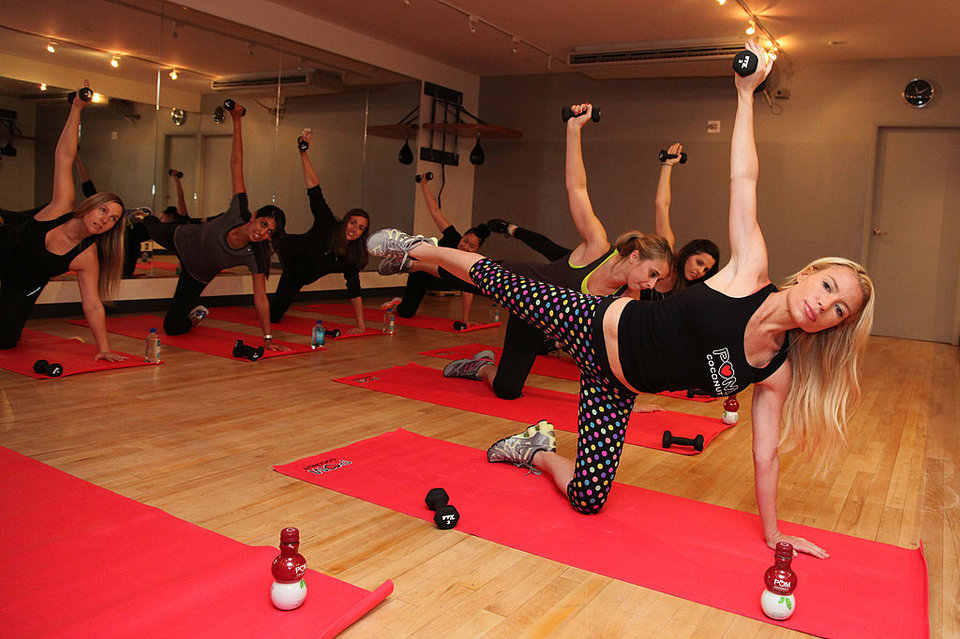Streaming is causing a fitness revolution
Why people love streaming workouts at home
There are a few simple reasons why working out at home is becoming increasingly popular: people are busier than they used to be, and there’s an increased demand for workouts in specialized disciplines like barre or yoga.
“It’s become more accessible now than ever for people to really get this type of training that they want,” said Roth. “As opposed to going to the gym and having to either educate themselves, or not feel as motivated as they are while getting training through these online classes.”
Those interested in streaming live and on-demand workout classes from home have a wide variety of options at their disposal, ranging from smartphone apps like Daily Burn and ClassPass Go to specialized hardware like bikes from Peloton and Flywheel.
In the short term, Roth said companies like Peloton and Mirror that offer hardware-based products are likely to be more successful since they allow participants to indulge in their favorite types of workouts with the convenience of staying at home. But over the long term, fitness apps that work in conjunction with wearable devices could end up being more popular. “People really want to quantify their health,” he said.
Working out at home is a concept that’s been around for decades. After all, it was probably Jane Fonda’s famous workout tape from 1982 that truly popularized the concept of exercising at home instead of at the gym.
But Mirror CEO Brynn Putnam says it was her lack of satisfaction with the currently available options that led to the development of Mirror, which launched in 2018. While Putnam wouldn’t divulge sales statistics, she did say the company sold Mirrors to every state across the country within a couple of months of its launch.
“It was a passive, one-way experience,” said Putnam in reference to at-home workout apps she’s tried in the past. “There was no interaction, there was no community, there was no progress reporting.

“That community aspect has proven to be a particularly important driver behind the growth of digital workouts. Although home workouts are typically done in isolation, they often inspire in active online communities where participants gather to share tips and techniques. A recent Instagram search for the hashtag #tracyandersonmethod turned up more than 12,000 photos and videos of users sharing their experience following the workouts of popular fitness trainer Tracy Anderson.
That can sometimes translate to sharing workouts in real-life too. Tricia Han, CEO of Daily Burn, an app that offers guided workout classes specializing in everything from cardio to mediation and high-intensity interval training, said sometimes app members will gather to workout together in person rather than going to a gym together.
For example, she mentioned a group of teachers in a small town in California that convene each morning to workout through Daily Burn together.


